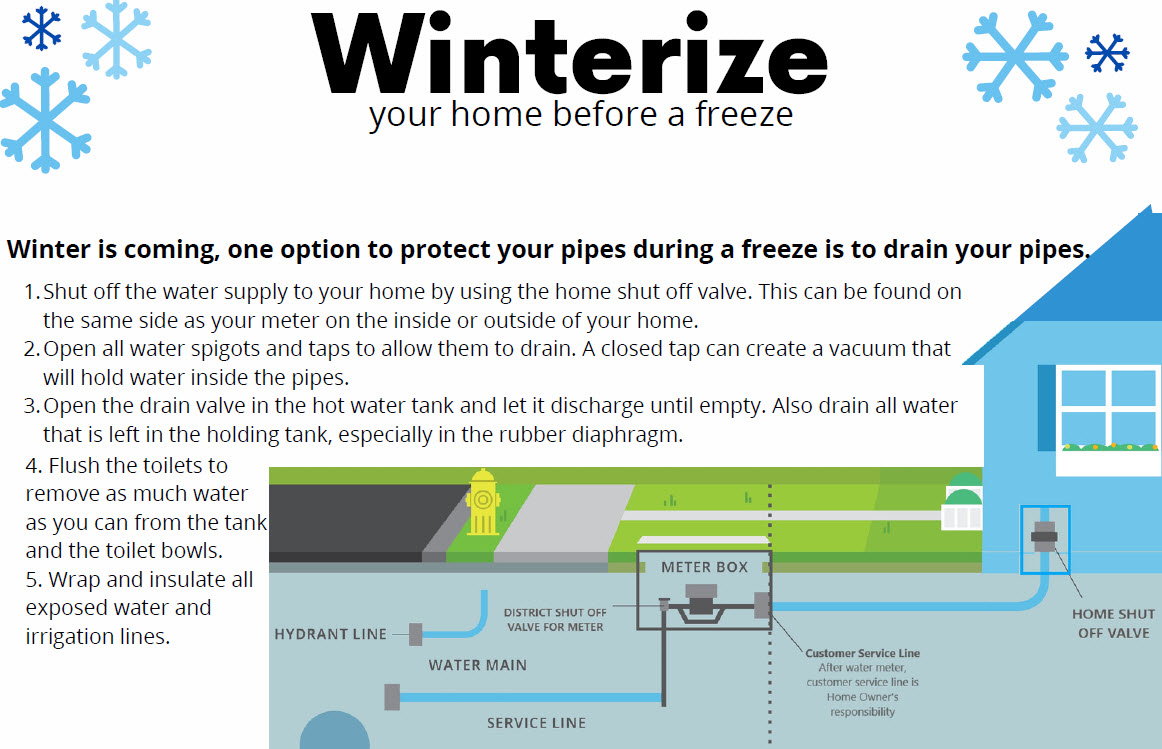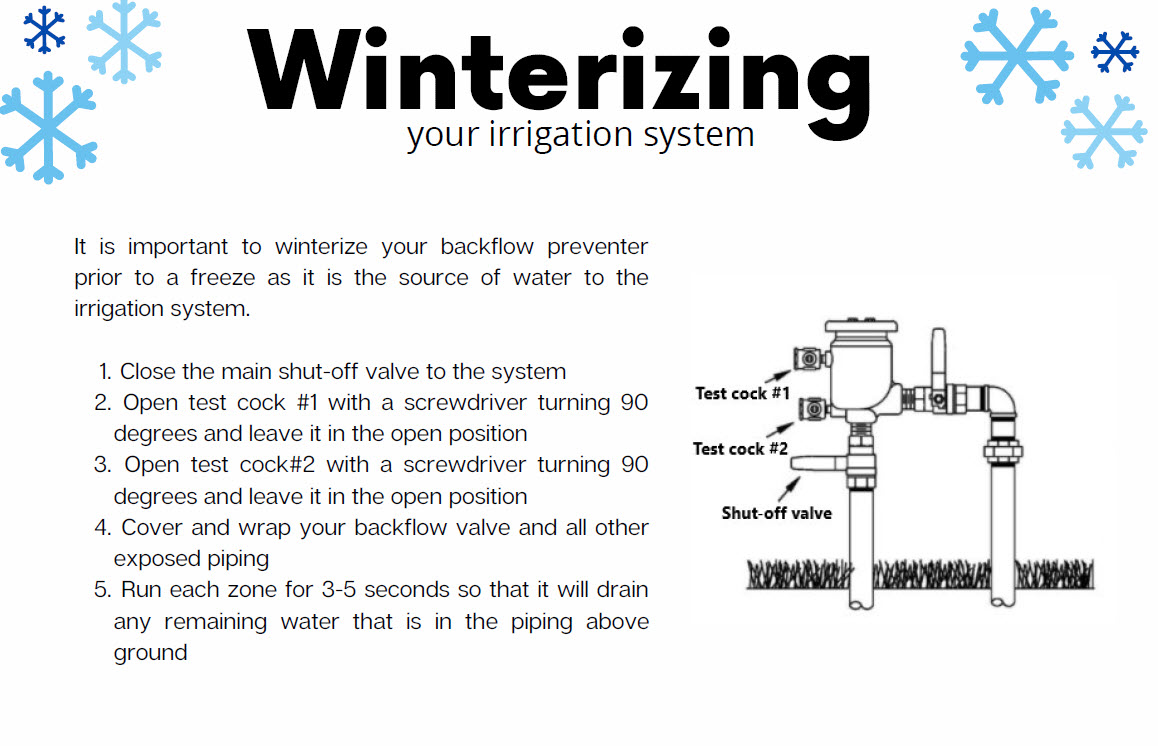Winterize Your Home Before a Freeze
Before a freeze, the District wants to provide helpful instructions to protect your pipes if the weather predictions are for a Hard Freeze.
According to the National Weather Service, a Hard Freeze occurs when the temperature reaches 28 degrees, or lower, for at least a few hours.
There are a number of ways to protect the pipes in your home, but the graphics below give instructions on how to drain the internal plumbing, and how to winterize and drain your irrigation system.
Additional instructions to protect your pipes are:
- Unhook any outdoor water hoses attached to your faucets.
- Wrap outdoor pipes and faucets with foam, rags, or other insulating material. To keep the insulation in place, secure it with string, wire, or tape.
- Install insulation or covers over outside water faucets.
- Open cabinet doors under your sinks to provide warm air circulation.
- Circulate water in your home by allowing at least one sink to drip.
- Keep the temperature of your home above 55 degrees.



